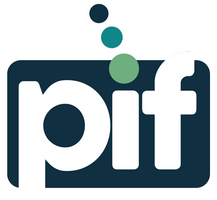Position: Head of Legal, Risk and Compliance at Thredd
Joseph trained at CMS Cameron McKenna, one of the largest law firms in the world, before working in private practice as a corporate finance lawyer. After moving in house, he worked as Legal counsel for the MENA region at Travelex before joining Thredd to lead the legal function.
Get to know Joseph Askham
Tell me about Global Processing Services and what is your role?
I am the Head of Legal at Global Processing Services (GPS). We are a payment processor supporting high profile and innovative fintech and challenger banks which deliver payments and card solutions to their customers.
What do you think is the driving force behind the exponential growth in Fintech?
The ability of Fintechs to innovate and be agile by comparison to legacy providers has been one of the key reasons for its growth. The acceleration of this trend during the pandemic showed the necessity of change in the marketplace. As consumer needs changed, there was greater urgency around service demand; contactless payments, online payment portals, digital services became essential, not just ‘nice to haves’. The investment by an Advent led consortium into GPS at the end of 2021 is evidence of the attractiveness of the industry as a whole and the companies that are looking to grow it.
Is it possible that regulation has fuelled the growth of Fintech?
Regulation breeds trust and trust in the product is ultimately one of the key factors behind a consumer choosing to use it. Operating on a fair and level playing field across things like PSD2 and AML regs allows for competition between fintechs which ultimately drives innovation and success. The journey from E-Money Licence to full banking licence (for example) is clear and provides certainty for all those operating in that sector.
Regulation aside, what do you think are the biggest challenges facing Fintechs today?
Cybersecurity. We live in a world where threats, in many case unknown threats, are all around us. The payments industry needs to be robust in its defence against these threats. The damage that could be done by a serious cyber-attack on a payments provider wouldn’t just cause transactions to fail in the immediate term but could destabilise trust in the industry as a whole.
How is the Payments Innovation Forum helping Fintech organisations face these challenges?
As an independent and not-for-profit organisation, PIF is in an excellent position to provide objective support for the industry by bringing contributors together. PIF uses its resources to facilitate knowledge sharing and hosts incredible events that showcase the very best of the industry.
How should the fintech sector respond to the cost-of-living crisis?
In much the same way as it did during the pandemic, by being innovative. When we provide the end-consumer with practical, cost-effective and convenient solutions, everyone benefits.
If you were prime minister for a day, what would you pledge in support of the industry?
We need to get money into the hands of the people that really need it (and actually spend it!). As the economic realities of the pandemic, the cost of living crisis and over a decade of government policy start to hit, spending habits are being affected. Growing the economy in a ‘bottom-up’ manner is the best way of supporting the industry (and the country more generally). I suppose I would pledge to try the exact opposite of ‘trickle-down’ economics because we all saw how that played out!


